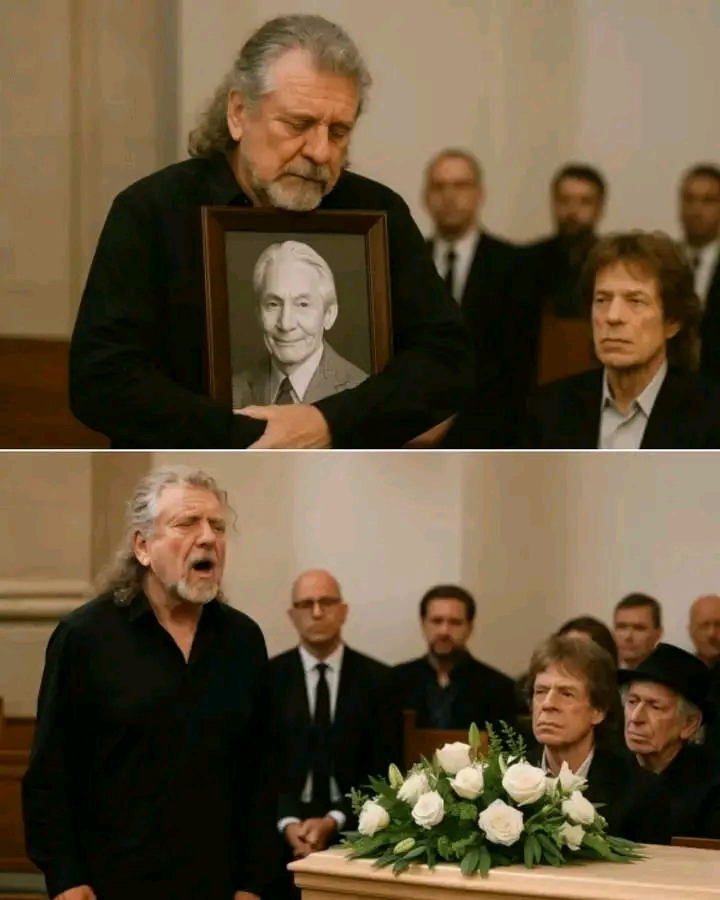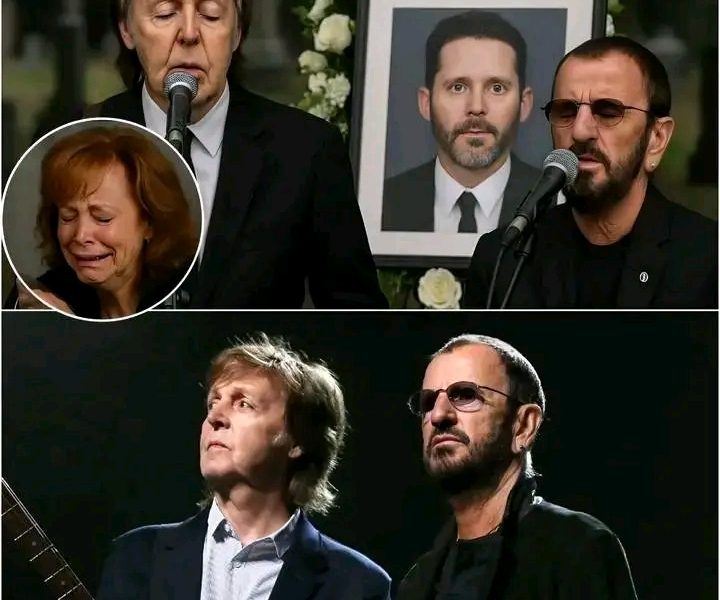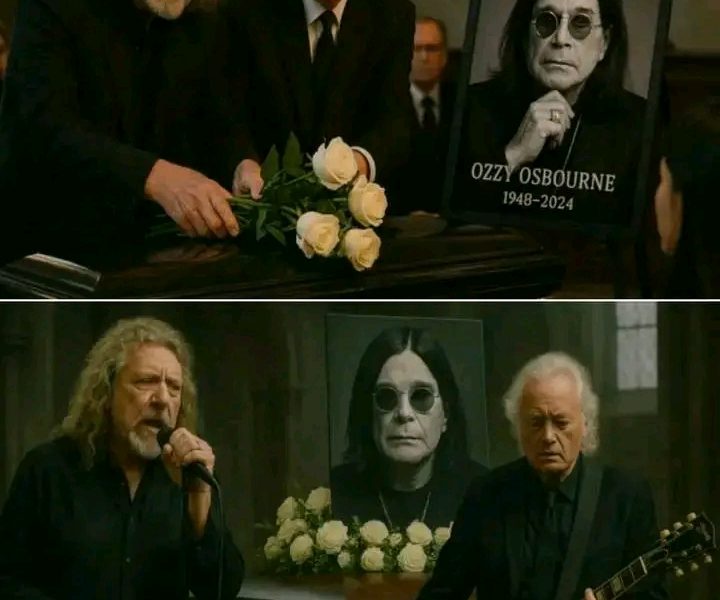The chapel fell into a reverent hush when Robert Plant quietly stepped forward at Charlie Watts’ funeral, dressed in a simple black suit with his iconic golden curls tied loosely back, and stood beside the coffin without a microphone, without a band — just his voice. Witnesses described how Plant closed his eyes and began singing a haunting, unaccompanied rendition of “Will the Circle Be Unbroken,” his weathered yet soaring voice echoing through the chapel like a prayer. Mick Jagger, Keith Richards, and Ronnie Wood, seated in the front row, were visibly moved, with Jagger wiping away tears as the song reached its final verse. When the last note trembled into silence, Mick rose and embraced Plant, later calling the performance “the most beautiful farewell Charlie could have ever received.” Mourners said it felt less like a performance and more like “one soul sending another home.” Within hours, the Rolling Stones released a statement, calling Plant’s gesture “a gift of pure love for our brother..
At Charlie Watts’ funeral, the air inside the small chapel was heavy with sorrow and reverence. Friends, family, and musical legends gathered to honor the life of the Rolling Stones’ beloved drummer, but it was a moment of quiet grace that left an indelible mark on everyone present.
As the service reached a lull, Robert Plant stepped forward from the pews, dressed in a modest black suit. His iconic golden curls, now streaked with silver, were tied loosely at the nape of his neck. There was no microphone, no fanfare — just the man, his voice, and the silence of a grieving room. He stood at the foot of Charlie’s coffin, closed his eyes, and after a moment of breathless stillness, began to sing.
It was “Will the Circle Be Unbroken,” a traditional hymn, rendered with aching beauty. Plant’s voice, weathered yet transcendent, soared gently through the space, each note reverberating like a prayer. There was no accompaniment, no amplification — only the purity of emotion and sound. Witnesses described how time seemed to pause, the chapel becoming less a place of mourning and more a sacred vessel for farewell.
In the front row, Mick Jagger sat with Keith Richards and Ronnie Wood, their faces etched with the weight of grief. As Plant’s voice rose into the final verse, Jagger was seen wiping away tears, his head bowed, lips moving along with the words. Richards clasped his hands tightly together, eyes closed, while Wood stared ahead, visibly shaken by the raw, unfiltered emotion in the room.
When the last note faded, leaving a trembling silence in its wake, Mick stood up and walked slowly toward Plant. The two men embraced — not as rock icons, but as friends sharing the weight of profound loss. No words were exchanged, but none were needed.
Later that day, the Rolling Stones released a statement: “Robert’s gift was a moment of pure love — one soul sending another home. Charlie would’ve smiled at the simplicity, the honesty, and the music.” Mourners echoed the sentiment, calling the performance “a eulogy of spirit” and “a farewell more powerful than any speech.”
In a world often too loud, Plant’s unaccompanied voice reminded everyone of the quiet power of music to carry us through grief, and of how deeply one artist can honor another — not with spectacle, but with soul.


